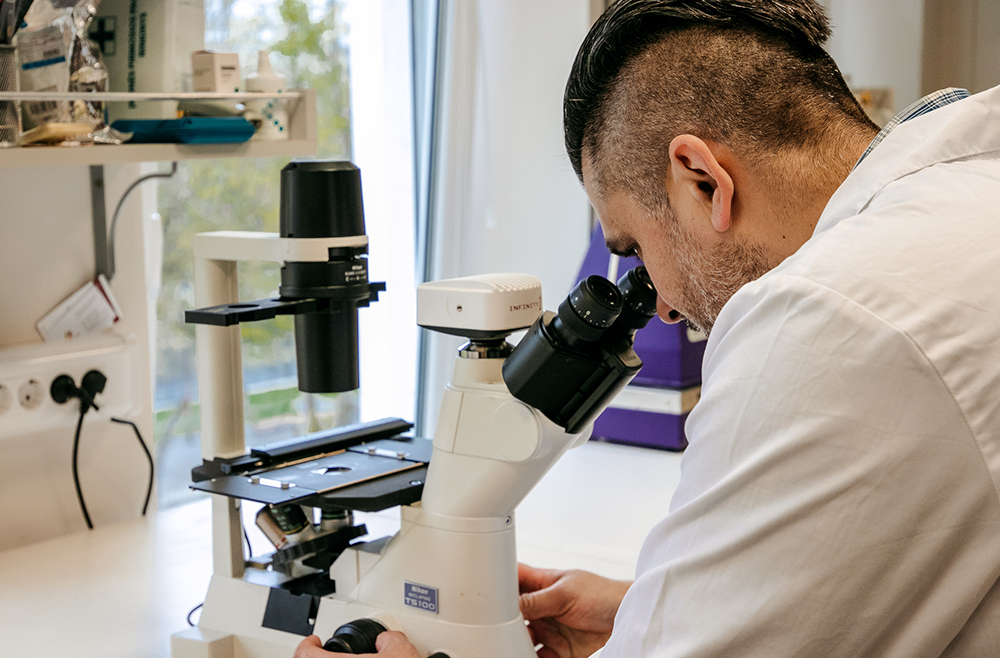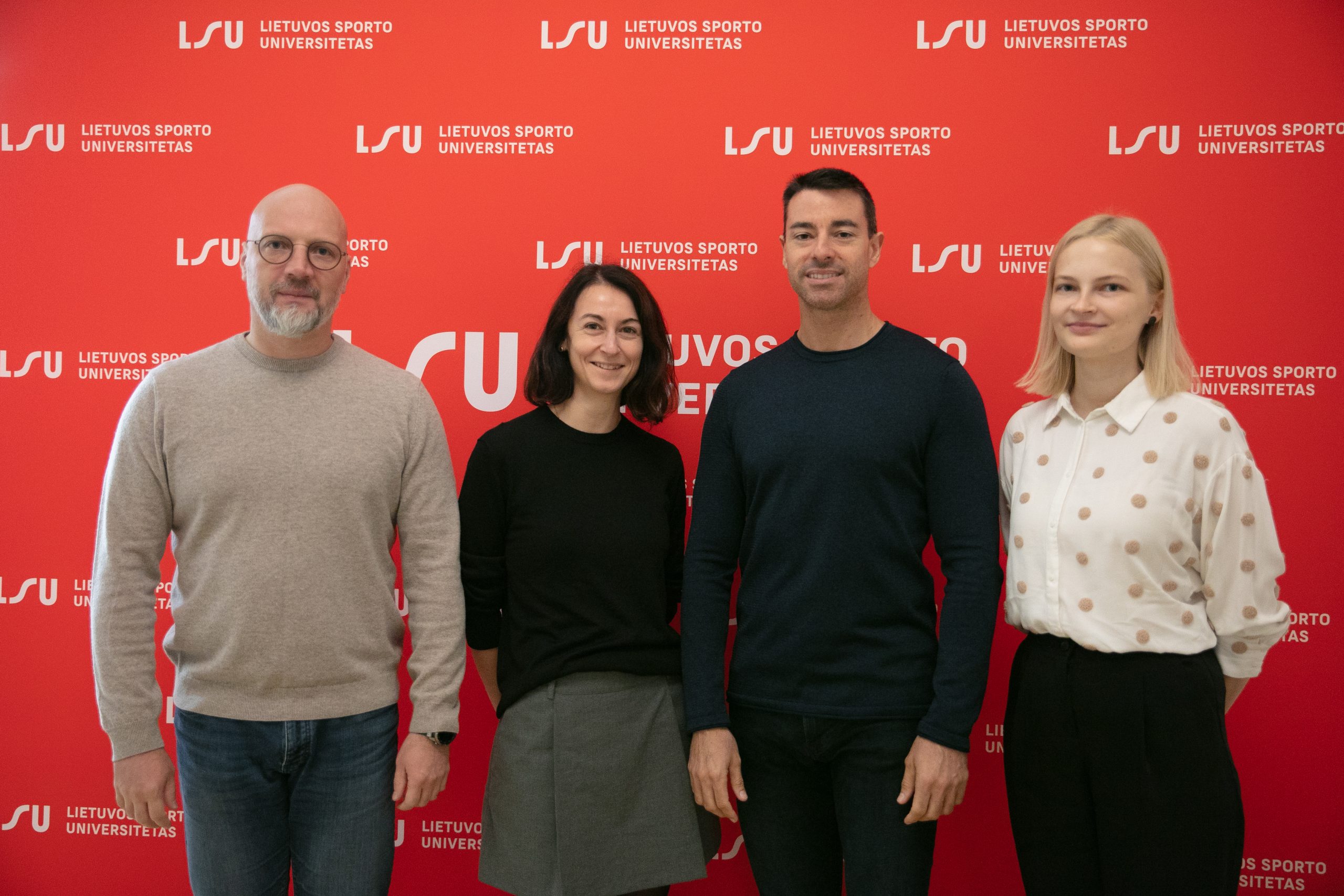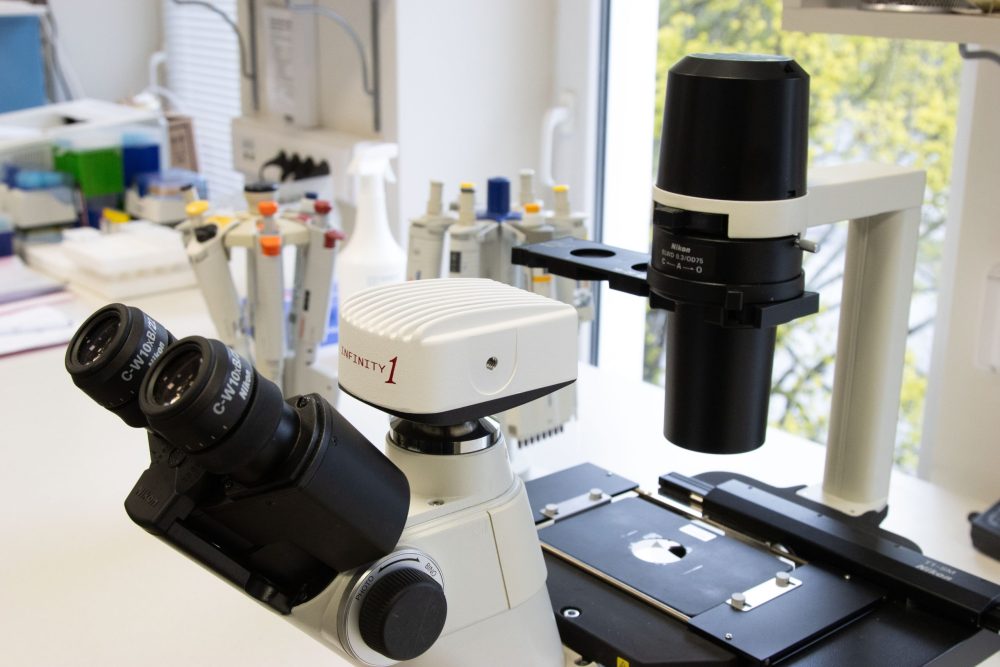Aivaras Ratkevicius, Doctor of Biomedical Sciences, affirms
 “Lithuanian Academy of Physical Education has introduced more beneficial study programmes for students and Lithuanian higher education institution is keeping ahead of the University of the United Kingdom “.
“Lithuanian Academy of Physical Education has introduced more beneficial study programmes for students and Lithuanian higher education institution is keeping ahead of the University of the United Kingdom “.
Researcher from University of Aberdeen (U.K.) who is now at LAPE, dr. Aivaras Ratkevicius has worked as an academic and scientific staff member at Scandinavian and UK universities for several years.
He has noted that the increasing media attention and discussions on the results of external quality assessment of higher education establishments are becoming a matter of great concern.
However, a consistent approach to excellence and a diversity of study programmes, delivered and quality assured by LAPE have not acquired a respectable evaluation.
You have worked as an educator and a research fellow in Scandinavian countries and the University of the United Kingdom too.
You are now coordinating research activities at the Department of Applied Biology and Rehabilitation of LAPE.
Can you acknowledge that national universities of our country are falling behind the universities of Western Europe?
A lot of differences can be identified between the universities of Lithuania and Western Europe, and even more can be traced between European and Scandinavian ones.
To state that Lithuania is falling behind in European education is not an appropriate expression to define those differences.
Traditionally, Lithuanian national universities have allocated funds and support to academic teaching of students meanwhile the research – driven education was not in the spotlight of academic community.
Consequently, the indices of conducted research in higher education in the context of national academic achievements tend to remain behind the universities of Western Europe.
However, I wouldn’t say the same about study programmes launched at national universities.
Can you draw parallels between study programmes introduced at LAPE and the University of the United Kingdom? What are the main similarities and differences?
The acquisition of knowledge with the promotion of thinking skills is the main priority at universities of UK.
Besides, in Scotland sports science is attributed to health sciences usually promoting the advanced level of knowledge in biology and medicine.
In addition, some universities, particularly the more traditional ones in the United Kingdom and Ireland, operate on a trimester system.
There are two twelve week semesters in a year of this particular university which enable to limit a number of direct contact meetings up to 15 hours.
Thus, the graduates of universities do not acquire a complete level of professional qualification, whereas a well-established multi-disciplinary study programmes introduced at LAPE are of specialism informed and help to attain professional skills. This is a great advantage of LAPE over the similar study programmes delivered at universities of the United Kingdom.
What are your views on a report recently published by external experts?
I have had an opportunity to get acquainted with the initial report of external quality assessment provided by external experts including a set of conclusions and recommendations. International experts have delivered the institutional evaluation however the external assessment of study programmes was not included.
There is no doubt, the competent recommendations of experts will make a substantial contribution to the enhancement of quality management system of Lithuanian universities striving to achieve European standards.
In my opinion, it is unfair to categorize universities into “good” and “bad” on the basis of external quality assessment conclusions. This approach might stipulate the emigration of young people to other European countries.
LAPE is the main institution of higher education providing a high level education in the areas of sport science.
Student migration to Western universities is getting much media attention and has generated fervent discussions in the society. Have you noticed any signs of transformation at universities of Scotland?
I have not conducted a thorough analysis on proportion of migration and it‘s difficult to draw general conclusions. But it is evident that the majority of young people from Lithuania are first and second year students studying the science of biomedicine at Aberdeen university.
What are future perspectives of the Lithuanian Academy of Physical Education?
I am convinced that sport is an integral part of human life in which LAPE is playing an important role and it‘s impossible to imagine the development of higher education in Lithuania without the Academy of Physical Education or being be replaced by any other institution of higher education.
Thank you for your interview.



